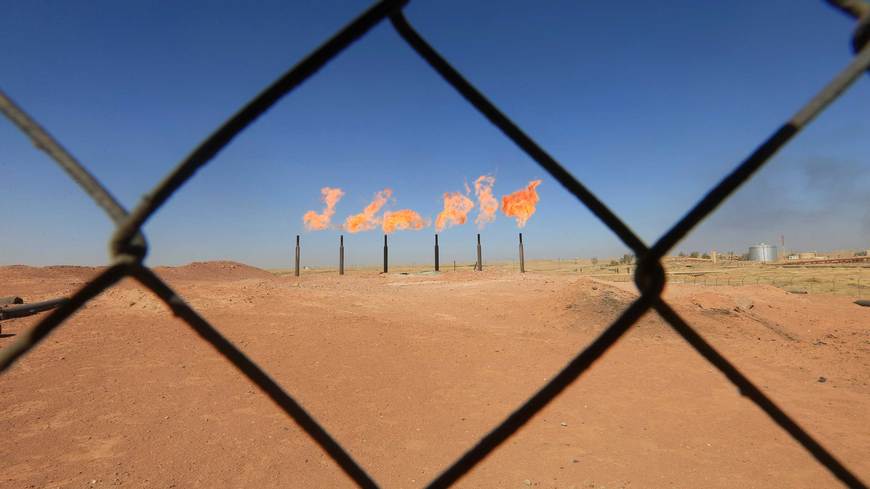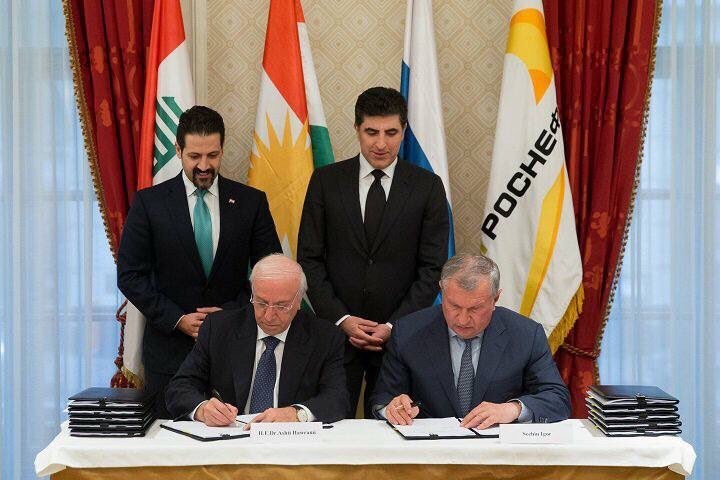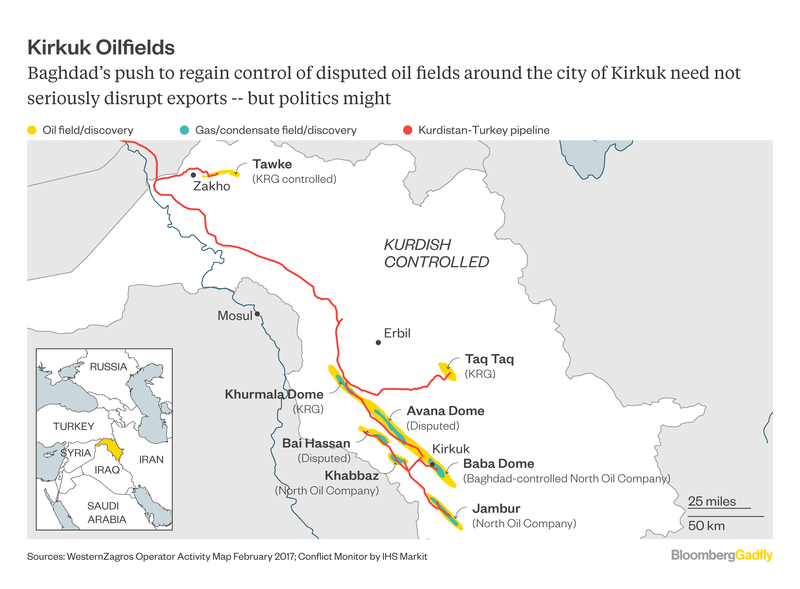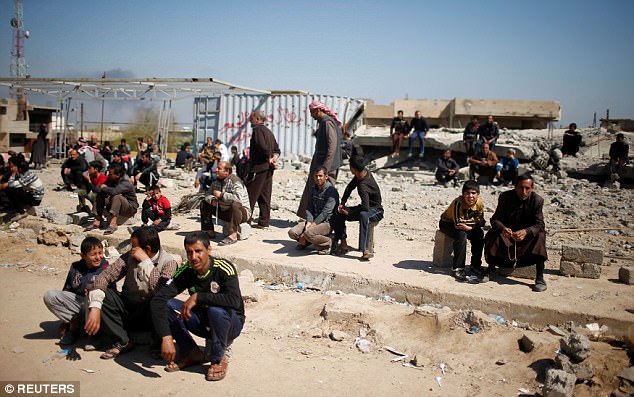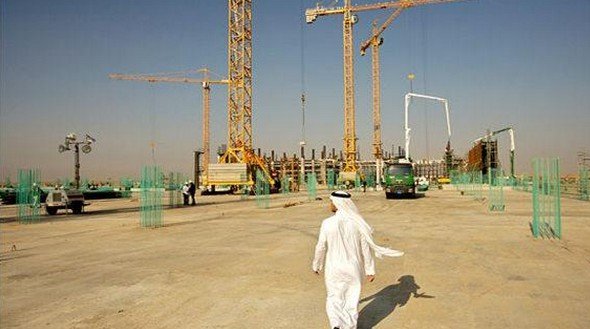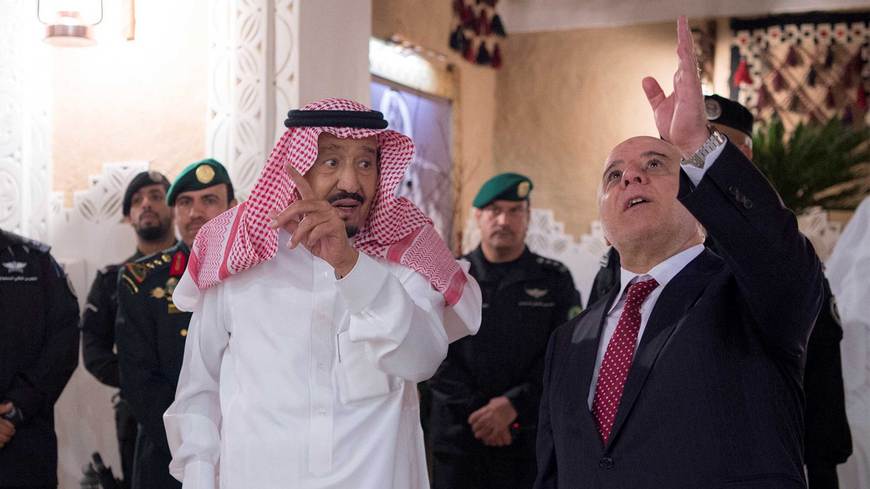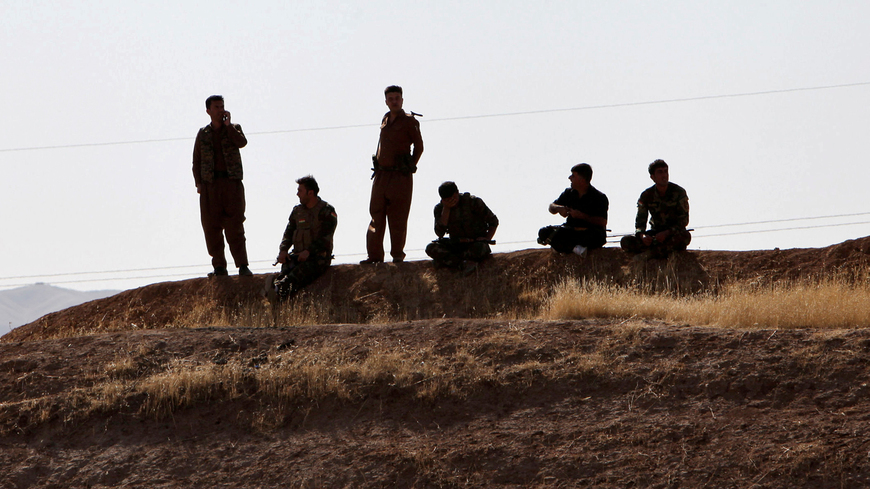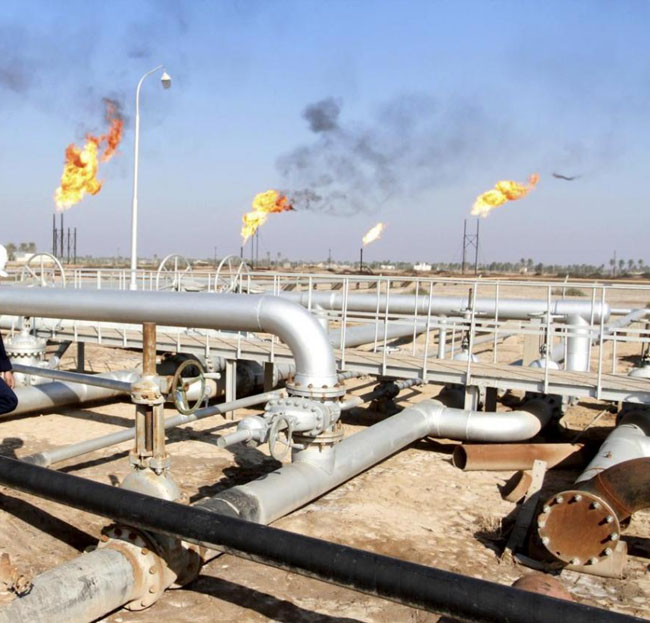By Adnan Abu Zeed for Al Monitor. Any opinions expressed here are those of the author and do not necessarily reflect the views of Iraq Business News.
The Iraqi State Organization for Marketing Oil (SOMO) announced Nov. 2 that it is arranging with Turkey to allow SOMO to sell Iraqi crude from the disputed territories through the pipeline from Kirkuk to the Ceyhan Turkish port.
The Kurdistan Regional Government (KRG) used to export about 500,000 barrels per day independently through Ceyhan before the Baghdad operation to retake the disputed areas in mid-October.
It was not long after the Iraqi army took over the oil fields in Kirkuk in a military operation to “impose security,” as described by Prime Minister Haider al-Abadi, that the federal government resumed oil pumping operations.
The operations started about a week after the clashes between governmental forces and Kurdish peshmerga forces. Meanwhile, the Ministry of Oil rushed to increase oil production, and on Oct. 23, the ministry requested the help of the British petroleum company BP in increasing production in Kirkuk oil fields to more than 700,000 barrels per day. The ministry also announced the formation of a ministerial committee to advance the oil industry in the province of Kirkuk.
Kirkuk has more than 35 billion barrels in oil reserves and a production capacity ranging from 750,000 to 1 million barrels per day. The federal government seems determined to control the oil sources, especially in Kirkuk and the disputed areas. In light of this, on Oct. 19, the Iraqi minister of oil warned all countries and international petroleum companies against signing contracts with any Iraqi party without first consulting the federal government.

